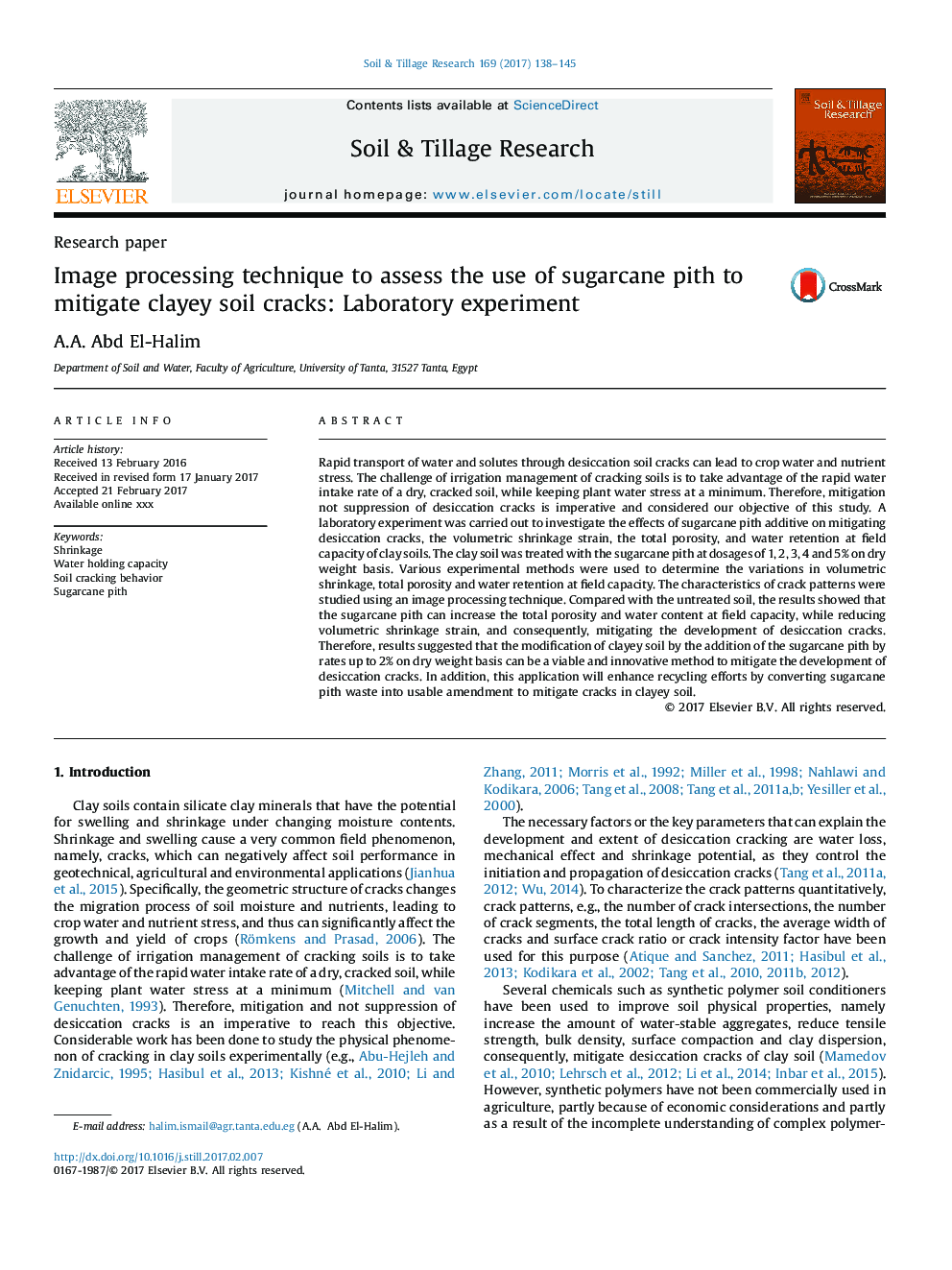| Article ID | Journal | Published Year | Pages | File Type |
|---|---|---|---|---|
| 4927582 | Soil and Tillage Research | 2017 | 8 Pages |
Abstract
Rapid transport of water and solutes through desiccation soil cracks can lead to crop water and nutrient stress. The challenge of irrigation management of cracking soils is to take advantage of the rapid water intake rate of a dry, cracked soil, while keeping plant water stress at a minimum. Therefore, mitigation not suppression of desiccation cracks is imperative and considered our objective of this study. A laboratory experiment was carried out to investigate the effects of sugarcane pith additive on mitigating desiccation cracks, the volumetric shrinkage strain, the total porosity, and water retention at field capacity of clay soils. The clay soil was treated with the sugarcane pith at dosages of 1, 2, 3, 4 and 5% on dry weight basis. Various experimental methods were used to determine the variations in volumetric shrinkage, total porosity and water retention at field capacity. The characteristics of crack patterns were studied using an image processing technique. Compared with the untreated soil, the results showed that the sugarcane pith can increase the total porosity and water content at field capacity, while reducing volumetric shrinkage strain, and consequently, mitigating the development of desiccation cracks. Therefore, results suggested that the modification of clayey soil by the addition of the sugarcane pith by rates up to 2% on dry weight basis can be a viable and innovative method to mitigate the development of desiccation cracks. In addition, this application will enhance recycling efforts by converting sugarcane pith waste into usable amendment to mitigate cracks in clayey soil.
Keywords
Related Topics
Physical Sciences and Engineering
Energy
Renewable Energy, Sustainability and the Environment
Authors
A.A. Abd El-Halim,
